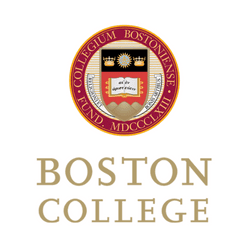Boston College, a prestigious institution known for its academic rigor and strong Jesuit tradition, is a popular choice for students looking for a well-rounded education. Located in Chestnut Hill, Massachusetts, this private research university offers a combination of top-tier education and a deep commitment to service, ethics, and personal growth. With a mission to prepare students for meaningful careers and fulfilling lives, Boston College attracts applicants from all over the world.
If you’re among the many students eager to become a Boston Eagle, writing a compelling personal essay is essential to standing out in the admissions process. But how can you ensure your essay resonates with Boston College’s mission and values?
In this guide, we’ll walk you through the Boston College essay prompts, offering advice and tips to help you craft an essay that highlights your strengths and sets your application apart. Let’s dive into each prompt and explore the best ways to respond.
About Boston College
Founded in 1863, Boston College has a rich history grounded in Jesuit principles. Known for its rigorous academics and strong emphasis on service and leadership, the university is dedicated to fostering a sense of community and personal growth in its students. Whether you’re interested in the arts, sciences, or social justice, Boston College provides students with the opportunity to explore their passions while making a positive impact on society.
Applying to Boston College
Boston College is a member of the Common Application schools, so you’ll submit your application digitally through the Common App platform. Keep in mind that BC receives tens of thousands of applications each year, making the admissions process extremely competitive. To be precise, the average acceptance rate hovers around 16%—meaning that strong academic records, standardized test scores, and extracurricular involvement are crucial. In addition to these factors, admissions officers place significant emphasis on your supplemental essays. They are looking for students who align with the school’s values of community engagement, leadership, and intellectual curiosity.
As the landscape of college admissions becomes increasingly competitive, a well-crafted essay is your opportunity to make a lasting impression across the board. Admissions officers are not only looking for academic achievement—they want to see your personal story, values, and potential contributions to the campus community.
There’s no time like the present. Let’s get to drafting.

Boston College Essay Prompts
Boston College asks applicants to respond to one of four essay prompts. However, you must respond to the fifth prompt if you are applying to the Human-Centered Engineering program. Each essay should be no more than 400 words.
Let’s break down each prompt and explore tips for writing a compelling response.
Prompt 1
“Each year at University Convocation, our incoming class engages in reflective dialogue with the author of a common text. What book by a living author would you recommend for your incoming class to read, and why would this be an important shared text?”
Advice for Responding
This prompt gives you the chance to showcase your intellectual curiosity and reflect on how a specific book impacted your worldview. When selecting a book, focus on something that has personally resonated with you, whether it’s because of the themes, the author’s message, or its relevance to today’s social issues. Be sure to explain why it would be valuable for others to read and how it could foster meaningful conversations among your peers.
Avoid simply summarizing the book—instead, use it as a springboard to discuss your values and how they align with Boston College’s unique mission.
Prompt 2
“At Boston College, we draw upon the Jesuit tradition of finding worthwhile conversation partners. Some support our viewpoints while others challenge them. Who fulfills this role in your life? Please cite a specific conversation you had where this conversation partner challenged your perspective or you challenged theirs.”
Advice for Responding
Boston College values intellectual curiosity and the ability to engage with differing perspectives. Make sure the conversation you choose illustrates growth in these areas. It’s not just about recounting a debate or disagreement but reflecting on how the conversation helped you mature as a thinker and a community member. Be intentional in choosing a conversation that has relevance to the broader intellectual and ethical questions Boston College expects its students to engage with—like understanding social justice, diversity, or global issues.
No matter which conversation you choose, demonstrate your critical thinking skills and openness to diverse viewpoints. Admissions officers want to see that you are reflective, curious, and willing to engage with ideas that challenge you.
Prompt 3
“In her July 2009 Ted Talk, “The Danger of a Single Story,” Chimamanda Ngozi Adichie warned viewers against assigning people a “single story” through assumptions about their nationality, appearance, or background. Discuss a time when someone defined you by a single story. What challenges did this present, and how did you overcome them?”
Advice for Responding
First, take some time to watch the video referenced in the prompt, as this will help you understand the intent behind this question. (Hint: if the application gives you a resource, it’s a good idea to use it!) Reflect on the message and themes before selecting the story you want to tell in response.
The prompt invites you to share a personal experience where you faced a challenge related to being misunderstood or stereotyped. Be honest and vulnerable in your response, showing how the experience impacted you and how you grew from it. Focus on how you overcame the challenge and what you learned about yourself and others in the process. This is an opportunity to showcase your resilience and your ability to rise above adversity, traits that Boston College values in its students.
Prompt 4
“Boston College’s founding in 1863 was in response to society’s call. That call came from an immigrant community in Boston seeking a Jesuit education to foster social mobility. Still today, the University empowers its students to use their education to address society’s greatest needs. Which of today’s local or global issues is of particular concern to you and how might you use your Boston College education to address it?”
Advice for Responding
For this prompt, it’s important to choose an issue that you are genuinely passionate about. Whether it’s climate change, social justice, or public health, focus on a problem that matters to you and explain how Boston College’s unique resources and values will help you make a difference. Admissions officers appreciate specificity, so discuss concrete ways that BC’s unique resources (such as its Global Public Health program or its strong ties to local community service) will allow you to further your impact on the world.
Additionally, be specific about how your experiences, skills, and education will contribute to solving this issue. Highlight your long-term vision for how BC can help you develop the skills needed to address this issue on a larger scale. Admissions officers are looking for students who are not only aware of the world’s problems but are motivated to take action.
Prompt 5 (HCE Applicants Only)
“One goal of a Jesuit education is to prepare students to serve the Common Good. Human-Centered Engineering at Boston College integrates technical knowledge, creativity, and a humanistic perspective to address societal challenges and opportunities. What societal problems are important to you and how will you use your HCE education to solve them?”
Advice for Responding
This prompt is specific to applicants interested in Human-Centered Engineering (which is a pretty cool program, so check it out). Focus on the intersection of technology and humanity, identifying a societal problem that resonates with you as a student. Explain how your passion for engineering, coupled with the Jesuit values of service and social responsibility, will allow you to address this challenge. Be sure to highlight any experiences, projects, or ideas that demonstrate your commitment to using engineering for the greater good.

Cracking the Code: Overall Essay Guidance
Crafting a compelling essay is not just about answering the prompt; it’s about making your application memorable by sharing your unique voice and perspective. Here are some essential strategies to help you write an essay that resonates with Boston College’s admissions officers.
1 – Be Authentic
Authenticity is key when it comes to writing a standout college essay. Admissions officers read thousands of applications, and they can tell when a student is being genuine versus when they are writing what they think the reader wants to hear. Instead of focusing on what you think will “sound good,” use this opportunity to showcase who you truly are. Think about your personal experiences, values, and passions, and let them shine through in your writing.
Tips for Authenticity:
- Reflect on why the prompt resonates with you. What personal experiences connect to your response?
- Use your own voice. Avoid over-complicating your language just to sound intellectual. Write like yourself—but with slightly more care and intention than a private journal entry.
- Show vulnerability. Sharing personal challenges or moments of growth can make your essay more relatable and compelling.
2 – Align with Boston College’s Core Values
Boston College’s Jesuit values of service, social justice, and ethical leadership are deeply woven into its academic and extracurricular programs. The admissions team is looking for students who not only excel academically but also demonstrate a commitment to making a positive impact on their communities.
When writing your essay, make sure you tailor your response to Boston College specifically. Researching the programs, clubs, and initiatives at Boston College that resonate with you is crucial. Admissions officers want to see that you’ve taken the time to understand what makes BC unique and how you’ll contribute to its community. Mentioning specific aspects of BC’s campus culture can make your essay stand out.
Lastly, remember to be as specific as possible in linking your personal experiences and aspirations to what BC offers, and highlight how your values align with those of Boston College. Whether it’s through volunteer work, leadership roles, or a desire to contribute to the common good, show how you embody the qualities that Boston College prizes in its students.
Tips for Aligning with BC’s Values:
- If you’ve been involved in service or community projects, share how these experiences have shaped your worldview and your desire to continue giving back.
- Demonstrate ethical reasoning. Whether you’re discussing a book recommendation or a personal challenge, show how you think critically about issues and strive to do what’s right.
- Mention how specific Boston College programs, resources, or opportunities will help you further your goals. For example, you could mention the PULSE Program for Service Learning or other Jesuit initiatives.
3 – Be Specific and Concrete
Strong college essays are rooted in specific details, rather than broad generalizations. When discussing your ideas, experiences, or beliefs, include concrete examples that illustrate your points. This not only makes your essay more engaging but also helps paint a clearer picture of who you are.
For instance, if you’re responding to the prompt about a book recommendation, don’t just describe the book—explain how a particular passage or theme from the book influenced your thinking or actions. Similarly, when reflecting on a conversation that challenged your perspective, be sure to give context about the person, the topic, and how the dialogue unfolded.
When it comes to drawing upon details external to your life, consider grounding your essay not just in personal growth but in how you will contribute to the BC community. Admissions officers want students who will actively engage in campus life and contribute to its sense of community and social responsibility. If you’ve engaged in service or leadership activities, tie those experiences to specific Boston College opportunities (e.g., service-learning courses or community outreach programs) where you can make an impact. The details are key.
Tips for Including Specifics:
- Use “show, don’t tell” whenever possible. Instead of saying, “I’m passionate about social justice,” describe a moment when you stood up for a cause or made a meaningful contribution.
- Include descriptive details about the books, conversations, or experiences you discuss. If you’re mentioning an author, share a quote or scene that deeply impacted you and explain why.
- Personalize your responses to Boston College. Rather than being vague about how you’ll contribute to the school, explain which specific programs, clubs, or values at BC resonate with your goals.

4 – Tell a Story
Narrative essays often have a stronger impact on admissions officers than straightforward explanations. By telling a story, you allow the reader to experience your perspective more vividly. A good story can be emotional, insightful, or humorous—as long as it reveals something meaningful about you.
How is that done? It’s not just about listing extracurricular activities but also reflecting on how they shaped you. Boston College values service, leadership, and ethical growth. When discussing your extracurriculars, frame them in terms of what you learned and how you plan to continue growing at BC. Did a leadership role teach you about community service or foster a deeper understanding of ethical responsibility? Connect these experiences to how you’ll be involved at Boston College, such as continuing similar work or expanding your leadership in new ways.
Once you have a basic draft, think about whether you can incorporate storytelling techniques to make your essay more engaging. Even if you’re discussing a broad topic like societal issues, consider grounding your essay in a specific anecdote or personal experience. The narrative doesn’t need to be dramatic, but it should reflect your personality and growth.
Tips for Storytelling:
- Begin with a hook—a compelling first sentence or paragraph that draws the reader into your story.
- Use a narrative structure. Introduce the challenge or situation, describe how you navigated it, and end with a reflection on what you learned.
- Don’t be afraid to use humor or emotion. A light touch of humor, when appropriate, can make your essay more personable. Similarly, if a certain experience was deeply emotional for you, sharing that vulnerability can create a powerful connection with the reader.
5 – Focus on Reflection and Growth
No matter which prompt you choose, your essay should demonstrate personal growth and self-awareness. Admissions officers want to see how you reflect on your experiences and how you’ve evolved over time. Whether you’re writing about a challenging conversation, a time you were stereotyped, or a book that changed your perspective, make sure to include a reflection on how the experience has shaped you.
Tips for Highlighting Reflection:
- Ask yourself, “How did this experience change me?” What did you learn about yourself or the world around you? Share those insights.
- Avoid the “resume recap.” The essay should focus less on listing accomplishments and more on the internal changes or discoveries you’ve made.
- End your essay with forward-looking statements. Reflect on how the experience will influence your future academic, personal, or professional goals.
6 – Edit and Polish
Even the best ideas can get lost if your essay isn’t well-organized or contains grammatical errors. After drafting your essay, take the time to revise and polish your writing. Ensure that your essay flows logically and that each paragraph builds upon the last. Pay attention to sentence structure, clarity, and tone. Reading your essay out loud can help you catch awkward phrasing or areas where your writing doesn’t flow smoothly.
Tips for Editing:
- Start by reviewing the content—does your essay answer the prompt fully? Does it reflect who you are?
- Check for clarity. Are your main points easy to follow? Is each paragraph connected by smooth transitions?
- Review your tone. Make sure your writing strikes the right balance between professionalism and personal expression.
- Proofread carefully for spelling, grammar, and punctuation errors. A well-polished essay demonstrates attention to detail and professionalism.
Your Future at Boston College…
Your supplemental essay is a critical part of your Boston College application. It’s your chance to show admissions officers who you are beyond grades and test scores. By following the tips outlined in this guide and staying true to your values, you can craft an essay that highlights your strengths and potential as a future Boston College student.
If you need more personalized support, Empowerly offers expert college counseling and essay writing services to help you put your best foot forward. Schedule a free 30-minute consultation with one of our experienced counselors today!

